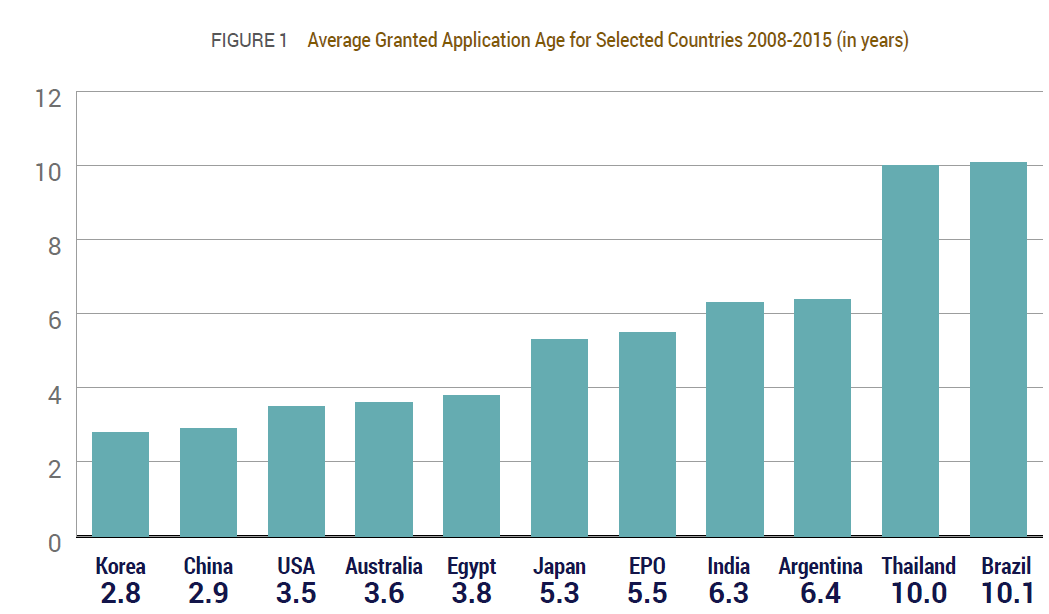In a sure sign that innovation is alive and well, the volume of patent applications is growing around the world. But a new report from the Center for the Protection of Intellectual Property (CPIP) reveals that patent offices in some countries are not keeping pace with demand.
In The Long Wait for Innovation: The Global Patent Pendency Problem, authors Mark Schultz and Kevin Madigan found that countries like Korea are processing applications in a timely manner while maintaining the quality of reviews. But inventors in a wide range of fields can wait as long as ten years or more, on average, for patents in Brazil and Thailand.
Long patent examination delays can harm inventors and consumers alike. They make it harder for inventors to attract capital and retain talent. Since the typical 20-year term of a patent begins at the time a patent application is filed, delays can also prevent inventors from achieving a sufficient return on their investment of time and resources.
When patent applications are delayed, consumers are often unable to gain swift access to the latest products. Health experts in India recently pointed out that patent delays for various innovations can slow down improvements in the field of medicine.
For countries that want to reduce lengthy patent examination backlogs and improve the competitiveness of their innovative industries, there are practical and proven solutions. Schultz and Madigan point to Patent Prosecution Highway programs that enable national patent offices to speed examination by sharing work and eliminating redundant steps.
Through work sharing and other process improvements, Japan has been able to cut the average time it takes to receive a patent from 6.4 years in 2008 to just 3.3 years in 2015. Japan is well on its way to becoming “the world’s fastest and utmost quality in patent examination”, and their experience demonstrates what can be achieved through focus and efficiency.
In many countries, long wait times can be partially attributed to a shortage of examiners. Increased hiring and training can help. For example, India recently launched an initiative to double the number of its examiners, and Thailand is training junior examiners to handle more complex applications.
The CPIP report aims to help examiners do their jobs better and faster. It calls for a serious global conversation on patent delays, for better tracking of data on patents pending, and for countries to commit to and implement solutions that will fix the problem.
As Schultz and Madigan state, “delays matter because patents matter.” The protections offered by patents allow for the innovations that fuel our global progress and benefit our world. Without thorough – but efficient – processes for granting patents, we all lose.
Read this article in Japanese here.
Read this article in Portuguese here.



